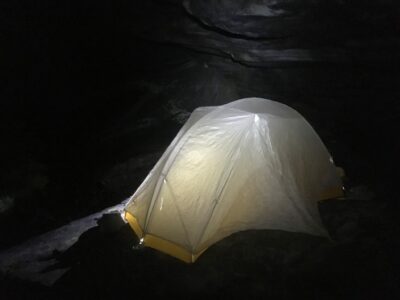Backpacking Tents: Freestanding or Non-freestanding?
By David Hallen and Liz Hubbard
Definitions:
Freestanding Tent: A tent that holds its form without external staking or usage of trekking poles.
Non-freestanding Tent: A tent that requires external staking and, normally, trekking poles to hold its form.
When purchasing a tent for backpacking, one must sort through countless considerations. You’ll be forced to decide on size, temperature rating, material, durability, price, and so many more. One of these considerations is whether to purchase a freestanding or non-freestanding tent. As the definitions above suggest, this differentiation goes to the very heart of the tent’s shape and form. The Heelhook has prepared the following pro’s and con’s list to help you learn more about these options and decide which is right for YOU!
Freestanding tents:
Pro: More user friendly (though this may just be an issue of familiarity)
Pro: Greater internal volue (due to internal poles providing structure)
Pro: Easier to pitch on rocky terrain (stakes aren’t essential to structure)
Pro: Less issue with condensation due to their double-wall nature
Pro: Greater ability to regulate temperature (removal rainfly)
Con: Tend to be heavier
Con: Slower to pitch
Con: Less wind-resistant
Con: Can get wet on the inside when pitching during rain (this can be resolved with tens that allow for pitching inside the rainfly)
Con: Often more expensive
Non-freestanding tents:
Pro: Lighter
Pro: Faster to pitch (due to not having to clip tent poles and single-wall nature)
Pro: More wind-resistant
Pro: Don’t get wet on the inside when pitching during rain (due to single-wall nature)
Pro: Often less expensive
Con: Most people are more familiar with freestanding tents, creating a learning curve
Con: Lower internal volume
Con: Harder to pitch on rocky terrain
Con: Greater issue with condensation


